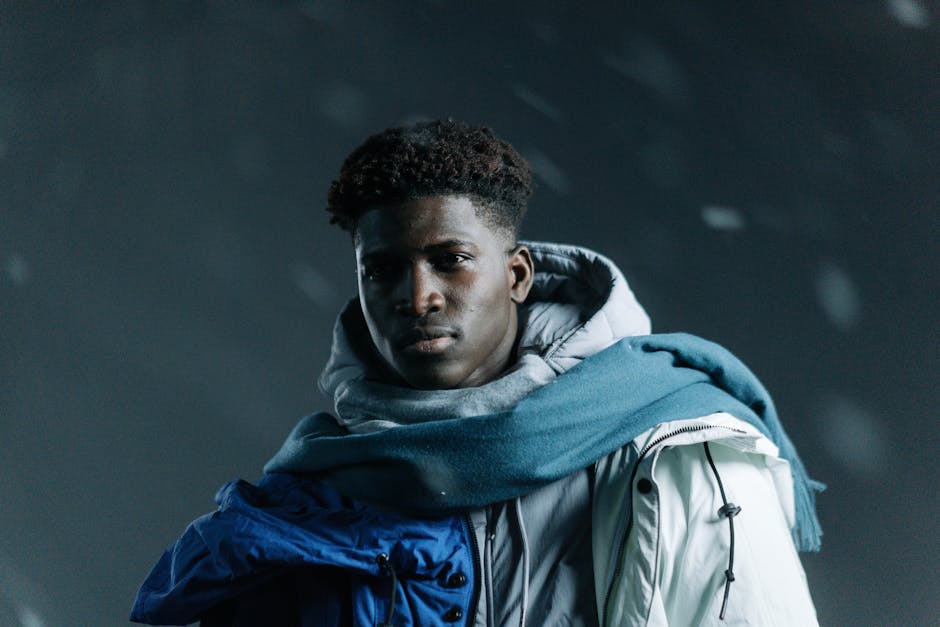It’s 2025 now, and, man, a lot has happened, right? Thinking back on the last few years, one thing that really stands out for me, and for a bunch of other people too, is how President Biden handled the whole pardon thing. You know, presidential clemency. It’s a power presidents have that can actually change lives, sometimes for the good, sometimes sparking a big debate. We’re not talking just a few names here or there; it’s a whole approach that kinda tells you what someone values. And with Biden, it’s been… well, it’s been quite a ride.
From my seat, looking back, the chatter around Biden’s pardons, what they meant, and who got them? That never really stopped. People still talk about it. Especially those connected to folks who got a second chance or, sometimes, those who felt someone else deserved one but didn’t get it. It’s pretty messy, this power, but absolutely essential for the system.
The Early Moves: Setting the Tone for Biden Pardons
When Biden first stepped into the Oval Office, there was a lot of talk about justice reform. You know, fixing stuff that felt broken, especially in the criminal justice system. And one of the clearest ways he showed he was serious about it was through pardons and commutations. It wasn’t just talk; some real action followed.
His initial steps were, I believe, fairly strategic. He started with stuff that seemed, honestly, like no-brainers to a lot of people. Think about those low-level, non-violent drug offenses. Especially marijuana possession. It’s kinda wild, you know, how many people got locked up for something that’s now legal in so many states. So, a big chunk of his early clemency actions went to folks convicted of simple marijuana possession under federal law. He’d announced this big push, saying it was wrong, that these folks shouldn’t have permanent records messing up their lives for something so minor. And a lot of them, they’d served their time, but that record? It kept them from getting jobs, housing, loans. It’s a real barrier. So, pardoning these specific types of offenses, that was a pretty clear signal he was serious about fairness, about giving people a real shot at life after prison.
And it wasn’t just blanket pardons for marijuana. There were other folks, too, often people who had served long sentences for non-violent drug charges that, frankly, looked different under today’s sentencing guidelines. You’d hear stories about people who got 20 years for something that someone today might get two for. That’s a huge disparity. So, some of those commutations, shortening sentences, felt like a long time coming for justice.
What’s interesting is how these initial pardons shaped public perception. For some, it was a breath of fresh air, a sign that the administration actually listened to calls for reform. For others, it was, well, expected, maybe even not enough. But it definitely kicked off the discussion around presidential clemency in a way we hadn’t really seen in a while.
The Deeper Cut: Beyond the Obvious Ones
Now, later on, the Biden pardons list started getting a bit more complex. It wasn’t just about simple drug offenses anymore. There were cases that highlighted issues with specific laws, or people who had demonstrably turned their lives around after making a mistake decades ago. It became clear that the process, while slow, was actually pretty considered. They weren’t just throwing names out there.
We saw pardons for individuals whose convictions stemmed from circumstances that, looking back, seemed unduly harsh or perhaps even rooted in historical injustices. Think about cases related to the justice system’s past, maybe even some specific types of white-collar crimes where the punishment seemed to outweigh the damage, especially for someone who showed real remorse and worked to make amends. This often involved people who had lived law-abiding lives for years, even decades, since their conviction, demonstrating full rehabilitation. A friend of mine, she works in legal aid, and she always says, “It’s not just about letting someone out; it’s about acknowledging they’ve done their penance and earned a fresh start.” That’s kind of the vibe you got from a lot of these later pardons.
There were also a few, and this is where it got a bit more political, pardons that touched on sensitive areas, perhaps related to events from past administrations or certain types of public figures. These were the ones that grabbed headlines and often sparked more heated discussions. What’s right? What’s wrong? Who deserves forgiveness? These aren’t easy questions, and sometimes the answers are messy. And that’s just how it is.
The Impact and the Pushback: A Mixed Bag
So, what about the real-world impact of these Biden pardons? For the individuals who received them, it was huge. A pardon means your conviction is essentially wiped clean from your record. It opens doors. Jobs. Housing. Voting rights in some places. A chance to just… live a normal life without that shadow hanging over you. You can’t really put a price on that.
But, like with anything this big, there was pushback. Some critics argued that certain pardons were too lenient, that they didn’t respect the severity of the original crime. Others questioned the transparency of the process, wanting to know more about why specific individuals were chosen over others. And, naturally, politicians from the other side of the aisle often used these decisions as talking points, saying it was either too much or not enough, depending on their agenda. It’s a political football, always has been, this clemency thing. It seems like it always will be.
Then there’s the sheer volume. Presidents before Biden, some had done a lot, others very few. Biden’s approach, especially early on with the marijuana pardons, felt more programmatic, aiming to address systemic issues rather than just individual cases one by one. But, for other specific cases, it was a detailed review, not a mass pardon. This mix, I believe, actually showcased a nuanced understanding of clemency. It wasn’t just a political stunt; there was a real effort to balance individual justice with broader social reform goals.
Looking Ahead: The Legacy of Biden’s Clemency
As we sit here in 2025, the lasting legacy of Biden’s pardons is still, kinda, being written. Will his approach set a precedent for future presidents? Maybe. What’s clear is that he brought presidential clemency back into the public conversation in a big way. He showed that this power isn’t just for famous people or political allies; it can also be a tool for rectifying historical wrongs and providing genuine second chances to everyday folks.
Think about what it means for the idea of rehabilitation. It says, hey, people can change. Mistakes happen. And if someone pays their debt to society and then lives a life that proves they’re good, then they should be allowed to fully rejoin that society. That’s a powerful message.
Of course, the debate about who deserves a pardon, how many, and why, that’ll never fully stop. It’s a reflection of our own values, really. But what Biden did, it put the spotlight on criminal justice reform in a tangible way. It moved beyond just talking about bills in Congress to actual people getting their lives back. And that’s something that, I think, we can all agree, is pretty significant. It wasn’t perfect, nothing ever is, but it made a difference. Some of those old convictions, they just kinda melted away for some people. And that’s a beautiful thing, isn’t it?
Frequently Asked Questions About Biden Pardons
What exactly is a presidential pardon?
Basically, a presidential pardon is like a government-issued do-over button for a federal crime. It totally forgives a person for a federal offense. It doesn’t erase what happened, but it restores rights that might have been lost, like voting or owning a gun, and removes some of the stigma of a conviction. It’s a big deal.
How is a pardon different from a commutation?
Okay, so a pardon is full forgiveness for a crime, even if someone already served their time. A commutation, though, it’s about reducing a sentence that someone is currently serving. So, if someone is in prison for 20 years, a commutation might cut that down to 10 years, or even let them out immediately. It doesn’t forgive the crime itself, just reduces the punishment.
Did Biden pardon a lot of people for specific types of crimes?
Yes, definitely. A very notable chunk of Biden’s pardons, especially early on, focused on people convicted of simple federal marijuana possession. He basically said those convictions were wrong and shouldn’t keep people from participating fully in society. But he did pardon others, too, for various non-violent offenses, and commuted sentences for long-serving drug offenders.
What’s the process for getting a presidential pardon?
It’s not, like, super easy. For most people, you apply through the Office of the Pardon Attorney in the Justice Department. They review your application, look at your criminal history, your behavior since the conviction, and get recommendations from prosecutors and judges. Then they make a recommendation to the President. It’s a long, detailed process, and very few applications actually get approved.
Were any of Biden’s pardons controversial?
Yeah, some definitely stirred the pot. While the marijuana pardons were pretty popular with many, any presidential clemency can be controversial. Sometimes, people argue that the crime was too serious, or that the person didn’t truly deserve forgiveness. There’s always going to be debate, especially when public opinion splits on what “justice” really means. It’s just how it goes with something this politically charged.




